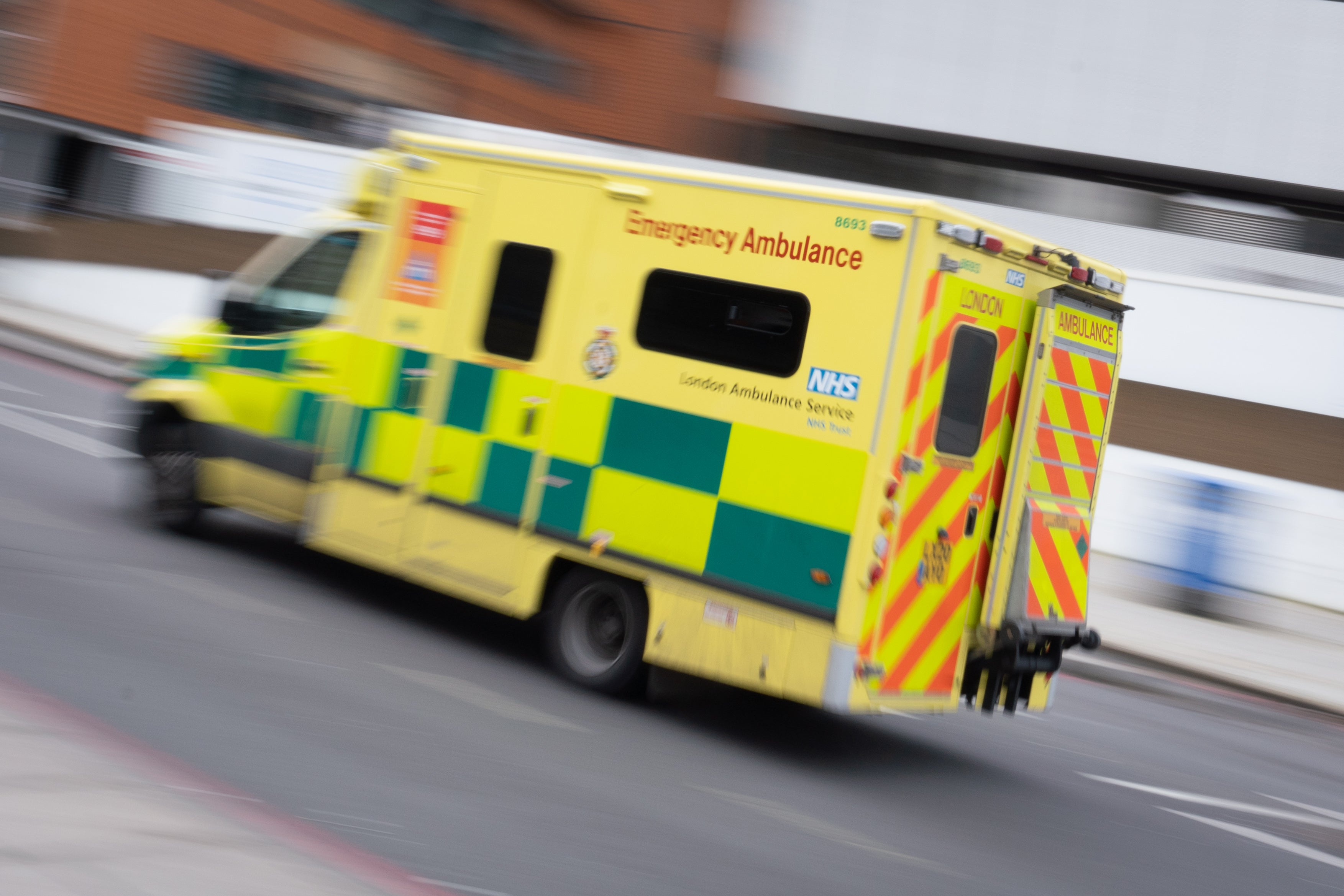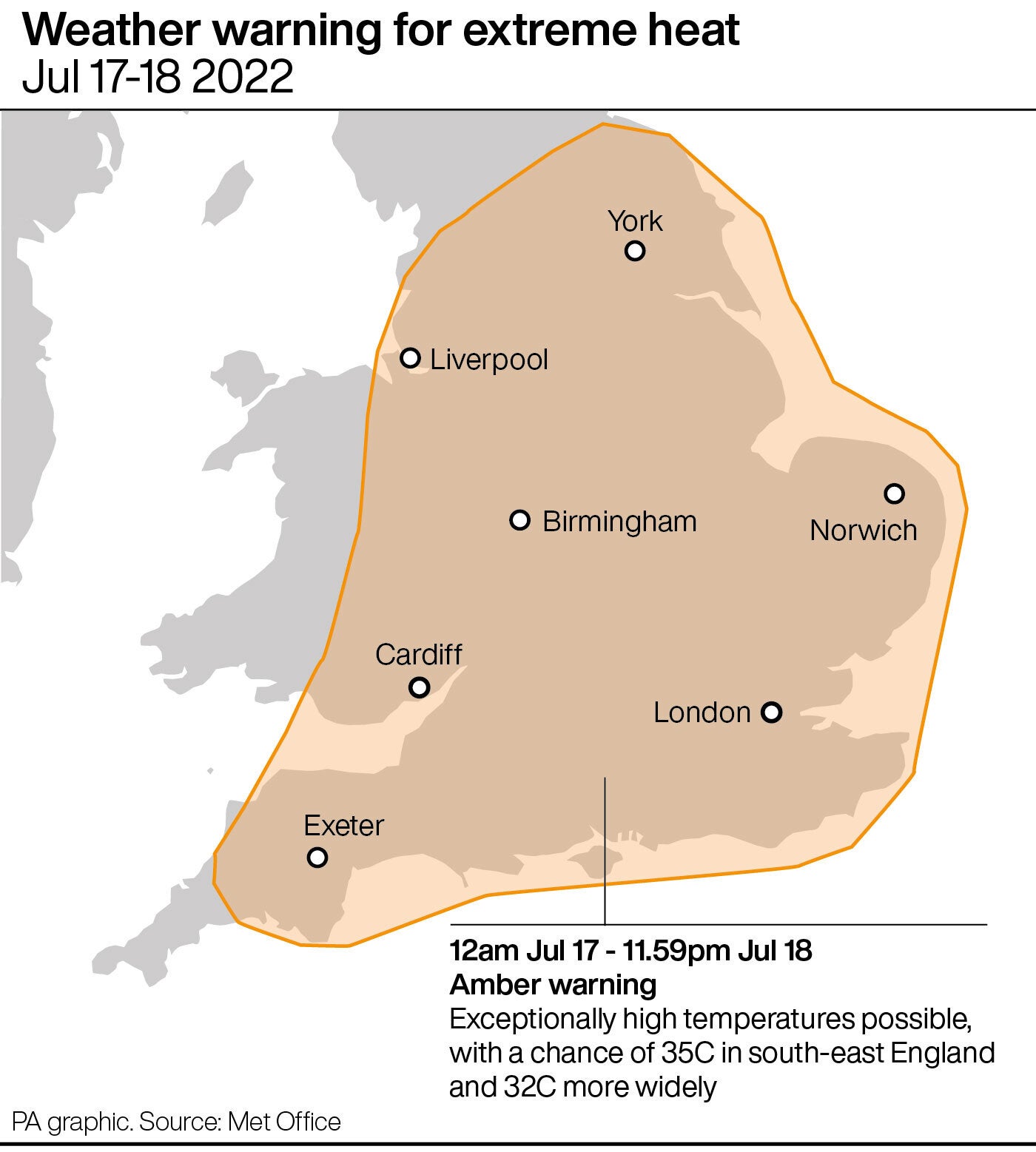Heatwave pushes NHS to ‘tipping point’ as hospitals and ambulance services declare black alert
‘Extreme heat is putting pressure on antiquated and ill-equipped NHS buildings’, warns Dr Layla McCay

Your support helps us to tell the story
From reproductive rights to climate change to Big Tech, The Independent is on the ground when the story is developing. Whether it's investigating the financials of Elon Musk's pro-Trump PAC or producing our latest documentary, 'The A Word', which shines a light on the American women fighting for reproductive rights, we know how important it is to parse out the facts from the messaging.
At such a critical moment in US history, we need reporters on the ground. Your donation allows us to keep sending journalists to speak to both sides of the story.
The Independent is trusted by Americans across the entire political spectrum. And unlike many other quality news outlets, we choose not to lock Americans out of our reporting and analysis with paywalls. We believe quality journalism should be available to everyone, paid for by those who can afford it.
Your support makes all the difference.A spike in Covid absences and the extended heatwave have left NHS hospitals and ambulance services struggling to cope.
The hot weather is also driving more patients to A&E departments, and callers are being urged not to use 999 except in serious emergencies.
All 10 ambulance trusts in England are on black alert, the highest level, while health leaders warn that “ill-equipped” hospital buildings are struggling to store medicines correctly amid the abnormally high temperatures.
Martin Flaherty, managing director of the Association of Ambulance Chief Executives, said: “The NHS ambulance sector is under intense pressure, with all ambulance services operating at the highest level of four within their local resource escalation action plans, normally only ever reserved for major incidents or short-term periods of unusual demand.
“Severe delays in ambulance crews being able to hand over their patients at many hospital emergency departments are having a very significant impact on the ambulance sector’s ability to respond to patients as quickly as we would like to, because our crews and vehicles are stuck outside those hospitals.”
“Added to this, we have a number of staff absences due to a rise in Covid cases as well as additional pressure caused by the current hot weather, which is making things even tougher for our staff and of course the patients they are caring for.”
One trust executive in the South West warned the pressure this summer was mounting and that the heatwave could be the “tipping point.”
He added: “We’ll start to see lots more numbers coming through, so I think we’re at a tipping point where we may well have to cancel some electives.”
Several hospital trusts, and whole regions are also on black alert level and warning patients to stay away from A&E, as their services struggle with Covid-driven staff shortages and the high temperatures.

Doctors have also reported to The Independent that more elderly patients are being impacted by the heatwave, with A&E departments seeing older patients attending departments this week.
NHS Blood and Transplant, which raised a warning over blood stock levels last week, said donations typically drop by 10 to 15 per cent in the hot weather.
Figures show Covid levels have reached a new record high for the pandemic, with an average of 351,000 people being infected each day, according to the latest incidence figures from ZOE Covid study.
Dr Layla McCay, director of policy at the NHS Confederation, told The Independent: “As well as a surge in demand, the extreme heat is also putting additional pressure on the often antiquated and ill-equipped NHS buildings and estates.
“We know that as temperatures rise, NHS organisations across the country are struggling to store medicines, food, lab kits and IT equipment at the right temperatures.”

She added: “Rising Covid cases means that staff sickness and absences are going up very quickly, and lasting for longer, at a time when the NHS is already plagued by chronic staff shortages and carrying 105,000 vacancies.
“In some parts of the NHS normal staff sickness rates have doubled. Combined with the extra effects of the heatwave on many in our communities the health service is once again experiencing extremely heavy demand.”
Miriam Deakin, interim deputy chief executive at NHS Providers, said: “All the signs point to a very challenging summer, autumn and winter for an under-pressure NHS as the strain on beds and overstretched staff increases.
“If the heatwave hits people’s health hard it will heap more pressure on services – particularly ambulance services for which demand is always high in hot weather – already dealing with recent weekly rises in the number of patients admitted to hospital with Covid-19.”

The Independent understands that, at one trust in the east of England, NHS bosses have been alerted over the impact of the current heatwave on the ability to store medicines at the correct temperatures.
A trust source said they were surprised at the “lack of awareness in hospitals of the importance of keeping all medicines and drugs below specific temperatures,” adding that many older buildings are likely to have “limited” air conditioning and use storage facilities that could easily warm up amid a record-breaking heatwave.
“Old storage facilities built in times where room temperature was the norm for all ordinary medicines … could be very hot,” the source said.
The Care Quality Commission, the UK’s health and social care regulator, has identified multiple hospitals in recent years which have struggled to consistently maintain the appropriate temperatures for medicine storage.



Join our commenting forum
Join thought-provoking conversations, follow other Independent readers and see their replies
Comments